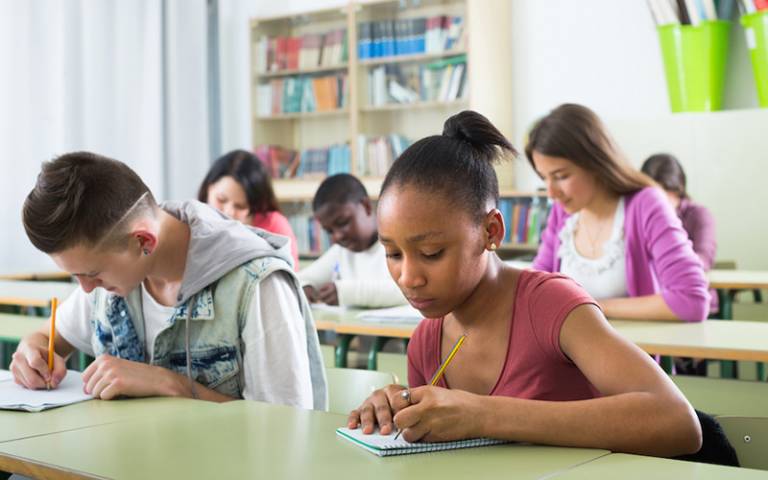Young refugees and asylum seekers mix language learning and scientific discovery at summer school
17 October 2019
PhD students from UCL Institute of Education (IOE) and the London Centre of Nanotechnology (LCN) ran a UCL summer school for young refugees and asylum seekers in August.

The course, now in its second year, aims to help the students to develop their linguistic and communicative skills in English, as well as their knowledge of computing and science. It aims to help them build vital personal and professional skills for the future.
Building on the success of a 2018 pilot project, the English team led by the IOE’s Jumana al-Waeli and Michael Beaney, and supported by a number of volunteer teachers from UK refugee charity Care4Calais, provided interactive English language lessons for forty students. The Science team, fronted by representatives from LCN led different sessions on computing skills, operating robots and using microscopes.
The English team employed an English as a second or foreign language (ESOL) approach to content development to help improve the students’ day-to-day communicative skills necessary to fully engage with the world around them. The lesson content aimed to reflect their priority needs and employ, as much as possible, subject matter that was engaging and relevant to their lives, plans, views and experiences.
Michael Beaney said: “For the language learning, we aimed at developing lexical range and accuracy by examining chunks of language and encouraging their use in contexts the learners were familiar with, such as education, food and free time activities. In practicing these chunks of lexis, we could employ a learner-centred approach by developing tasks that emphasised the communicative aspect of language learning, encouraging real, meaningful communication between our students.
“Teachers employed a similar approach to the language lessons, with the overall aim of developing confidence and fluency in oral production. Other skills-focused sessions examined other useful areas such as building presentation skills and CV writing, which should be of great benefit to these students in the near future.”
The English teachers also spent some of the English sessions in building comprehension of key vocabulary for the Science sessions in the afternoons. The Science sessions covered a wide range of areas, such as basic computing skills, coding of robots, extracting DNA and even assembling DIY microscopes using phone cameras.
The summer school finished with an end of class celebration with students presenting posters on their favourite topics from the classes.
Mr Beaney added: “The students were all extremely enthusiastic presenting their posters and the celebration proceeded with pizza, snacks and a certificate ceremony. It was truly a great ending to a fantastic fortnight of English language and Science activities, and is an example of how we can combine disciplines to deliver an engaging and innovative learning experience.”
 Close
Close

